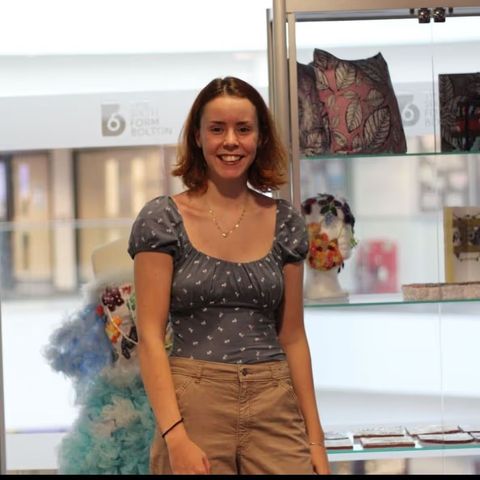Course overview
Would you like to study a science which underpins our newest and future technologies? Physics underpins all science and engineering and is crucial to careers in aerospace and automobile engineering, medical sciences, electronics and space exploration. Physicists are crucial in developing the quickest computers, to the fastest cars and the tallest buildings. Physics will challenge and stretch your imagination, analysing everything from the smallest particle to the universe itself.
Entry requirements
Students will be expected to have at least three GCSEs at grade 6. If you studied Combined Science you will be expected to have a double grade 6 in Science and grade 6 in Mathematics (higher grade tier). If you studied separate sciences, you will be expected to have GCSE grade 6 in Physics, grade 6 from Chemistry or Biology and grade 6 in Mathematics. You will also be expected to have English Language at grade 5 and the remainder no less than grade 5/4. You are strongly advised to also study A Level Mathematics, as this is essential to study Physics at university.
Topics you will study
Topics you will study in A Level Physics include:
• Foundations of physics
• Motion
• Forces in action
• Work, energy and power
• Materials
• Laws of motion and momentum
• Charge and current
• Energy, power and resistance
• Electrical circuits
• Waves
• Quantum physics
• Thermal physics
• Ideal gases
• Circular motion
• Oscillations
• Gravitational fields
• Stars
• Cosmology
• Capacitance
• Electric fields
• Magnetic fields
• Particle physics
• Radioactivity
• Nuclear physics
• Medical imaging
Key features
You will develop and be assessed on your knowledge of both experimental and theoretical physics. During the first year you will build on what you’ve covered at GCSE, the core physics of mechanics, waves and electrical circuits along with the exciting world of quantum physics. In the second year you will study Newton’s theories of gravity, thermal physics and begin to explore the new frontiers of physics – field theory, nuclear and particle physics, astrophysics and medical imaging. You will build up a portfolio of experimental work to demonstrate the development of your practical skills and you will receive a separate qualification that will sit alongside your A Level qualification.
Assessment
Physics A Level is a linear course with all external exams at the end of the two year course. There are 12 practical endorsement assessments which are graded as a pass or unclassified.
Exam Board: OCR
Enrichment and Work Experience
Students are expected to complete a one-week work placement in the Summer term. There is an opportunity to visit the Jodrell Bank Observatory - the largest radio observatory in the UK. We use the website Isaac Physics which stretches students far beyond the syllabus, with some very hard problems and is composed by the University of Cambridge. Additionally, Isaac Physics organises free lectures and workshops at the University of Manchester.
Why choose B6?
The Sixth Form has attractive, well equipped teaching laboratories in which you will have every opportunity to link theory with practice and develop confident practical skills. We offer opportunities in and out of the laboratory to enrich and challenge you. We also have good links with prestigious universities which have allowed our students to experience undergraduate practical work.
Students have had the opportunity to visit the European Centre for Particle Physics, CERN, Geneva, Switzerland where the Large Hadron Collider is housed. Students are also invited to attend Med-Soc, (formerly Operating Theatre Live) partially funded by The Sixth Form and a bespoke STEM event designed to provide independent advice and guidance on a wide range of careers and courses in the scientific and medical fields.
Many science students are also members of the Science Academy and Honours Programme within The Sixth Form that provides extensive opportunities for personal development to success in their applications to university.
Future career opportunities
Physics is essential in pursuing careers in astronomy, space science and engineering-related disciplines and engineering is an area where there is a great shortage of qualified people. Physics is also highly regarded in diverse fields such as medicine, computer science, mathematics, optometry, dentistry, geology, chemistry and biology.
Additional information
Students will bring basic stationery and a calculator to lessons, be punctual, engaged and ready to learn. We also expect you to commit to at least five hours per week outside of lesson on independent learning. This will include: homework, reading, research and revision for this subject.
Catherine Rhodes
Studying:
A Level Biology, Chemistry, Physics, AS Level Core Mathematics and EPQ
Previous school:
Dean Trust Rose Bridge Academy
Related Courses
News
Sixth Form Expressive Arts Alumni Share Their Success Since Leaving B6
It’s always lovely when former students drop in to see us and recently a number of Expressive Arts
Art Students stun with end of year showcase
Early last week, Level 3 Art & Design students from The Sixth Form Bolton proudly showcased their
Future Lawyers Celebrate Exceptional Results
Students from The Sixth Form Bolton are celebrating securing their first-choice universities and









